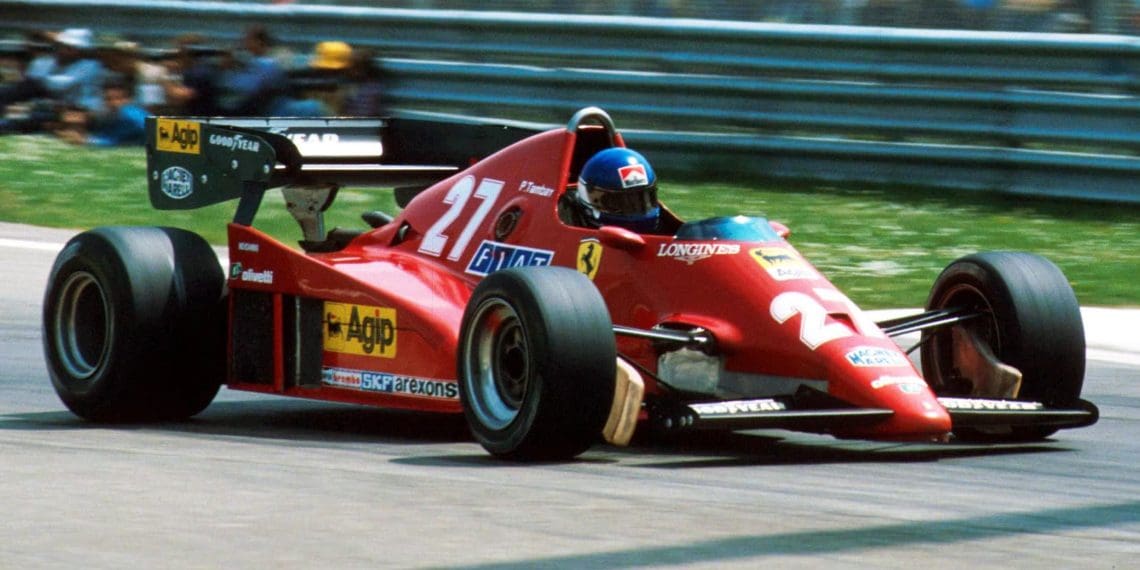As the Williams turned into an open-air inferno on a rain-soaked Zandvoort circuit, James Vowles knew he had to act swiftly. The underperforming American driver Logan Sargeant was out, and with only days left before the Italian Grand Prix, Williams drafted Argentine talent Franco Colapinto to replace him. Few had heard of Colapinto, but his performance in Azerbaijan and his ability to keep Alex Albon on his toes have proven that Williams may have struck gold with this bold move.
The midseason shake-up at Williams is part of a rich Formula 1 tradition, where desperate situations and unexpected driver swaps can completely change the course of a season—or a career. Let’s dive into some of the most memorable instances where rookies stepped in and rewrote history, starting with none other than Max Verstappen.
Max Verstappen: Red Bull’s Gamble Pays Off (2016)
At just 18 years old, Max Verstappen made history by becoming Formula 1’s youngest race winner at the 2016 Spanish Grand Prix. After a promising start with Toro Rosso, Verstappen was suddenly promoted to Red Bull, replacing the crash-prone Daniil Kvyat. The Russian had fallen out of favor after two disastrous incidents with Sebastian Vettel in consecutive races.
Verstappen’s debut for Red Bull was nothing short of legendary. Starting fourth, he capitalized on a collision between Mercedes teammates Lewis Hamilton and Nico Rosberg, moving into second. Red Bull split the strategies, but it was Verstappen who held his nerve, keeping Ferrari’s Kimi Raikkonen at bay to claim his first victory. His promotion proved prophetic, as he went on to become the sport’s dominant force, clinching three world championships by the age of 26.
Michael Schumacher: The Belgian Breakthrough (1991)
In one of the most unusual and pivotal moments in F1 history, Michael Schumacher was drafted by Jordan to replace Bertrand Gachot just a week before the 1991 Belgian GP. Gachot found himself behind bars after a road-rage incident in London, leaving the fledgling Jordan team without a driver.
Schumacher had never driven around the Spa-Francorchamps circuit, but that didn’t stop him from qualifying a stunning seventh. While his race ended after just one lap due to clutch failure, his performance was enough to catch the eye of Benetton team boss Flavio Briatore, who promptly snatched him up. The rest, as they say, is history: Schumacher would go on to become a seven-time world champion and one of the most iconic drivers in the sport.
Robert Kubica: From Reserve to Race Winner (2006)
Robert Kubica’s rise to fame began when Jacques Villeneuve, recovering from a brutal crash in the German GP, couldn’t race at the Hungarian GP. BMW Sauber tapped Kubica to fill the seat, and the Polish driver delivered an impressive performance, out-qualifying teammate Nick Heidfeld and finishing seventh—only to be disqualified due to an underweight car.
Two races later, Kubica made history by becoming the first Pole to stand on an F1 podium, finishing third at Monza. By 2008, he won the Canadian GP in Montreal, but a 2011 rally crash derailed his F1 career. Though he returned to the sport in 2019, it was in sportscar racing where Kubica would find lasting success.
Patrick Tambay: Ferrari’s Emotional Savior (1982)
After the tragic death of Gilles Villeneuve at the 1982 Belgian GP, Ferrari turned to Villeneuve’s friend, Patrick Tambay, to fill the massive void. Tambay’s return to the sport was far from ordinary—he had left F1 earlier that year in protest over superlicense disputes. Yet, Ferrari brought him back, and though his debut at the Dutch GP was quiet, Tambay’s win at the German GP, weeks after Didier Pironi’s crash, was a much-needed morale boost for the team.
Tambay’s victory at Imola in 1983, in Villeneuve’s honor, remains one of Ferrari’s most emotional wins. His results helped secure Ferrari the 1982 Constructors’ Championship.
Jean Alesi: The Wrong Sponsor, The Right Driver (1989)
Michele Alboreto was let go by Tyrrell after finishing third in Mexico City for a reason as strange as it was significant: He had the wrong tobacco sponsor. Tyrrell was sponsored by Camel, while Alboreto was backed by Marlboro, leading to the Italian’s sudden departure.
Enter Jean Alesi, a fiery young driver from Formula 3000. Although it was meant to be a one-off appearance at the French GP, Alesi stunned the field by finishing fourth. His aggressive driving style quickly earned him a full-time seat, and he went on to have a storied, albeit tumultuous, F1 career.
Whether it’s a mid-season driver switch or a team trying to claw back from the brink, Formula 1’s unpredictability has often produced moments of brilliance and heartbreak. As Franco Colapinto takes his place at Williams, he joins an elite group of drivers thrust into the spotlight—and only time will tell if he, too, will make history.










